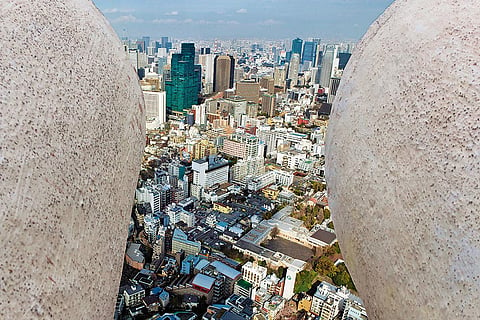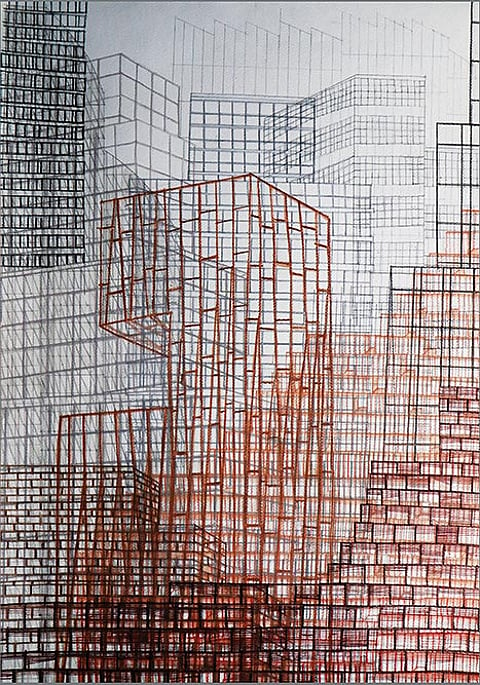Apocalypse has been the watchword in the world of travel for many years now. Climate change research has reminded us that every crossing of the planet inches us closer to the destruction of our race. Streets are so deadlocked that Elon Musk has begun building tunnels under American cities. In Kyoto, near which I live, the 88 million who visited in 2019 came to 33 times the number of people actually living in the area. Walk down a narrow lane to a quiet temple, and all you could see were selfie-sticks and the backs of other visitors.
The Good Earth: Resilient And Resourceful
Our planet remains inexhaustible, as inexhaustible as our capacity for instruction and exploration.
Now, all of a sudden, the pandemic has added to that sense of doom, but in the opposite direction, by emptying roads that were previously full. Overnight, the cruise-ships that used to look like luxury hotels crossed with amusement parks came to resemble floating cauldrons of contagion. Not only were borders sealed and flights cancelled, but the skeleton staffs that remained sounded entirely at sea: calling my regular airline to book a flight for my wife in 2020, I was reminded that it would cost more than $4,000 for the cheapest Economy seat, even though the same seat, on exactly the same flight, together with a return leg, could be had for $1,200. Every day has become a blackout date, with no end in sight, as long-awaited holidays, business trips, family reunions get postponed again and again, then again.
In certain ways, the unending lockdown has been a wake-up call to jolt us out of some of our not-so-healthy habits. Corporations have realised that they don’t need to send executives across the world for a one-hour meeting if the same material can be discussed, almost as intimately, on Zoom. The skies around me, when I visit my mother in California, have looked clearer than I’ve seen them in fifty years. Taking walks for the first time outside my two-room apartment in Japan, I’ve seen wonders as radiant as I might once have travelled to Tibet to observe. The same globalism that sends a virus across the planet at the speed of light has also allowed us to stay in touch with one another in ways we could not have imagined twenty years ago.
I think back to my own life immediately before the pandemic descended, and flinch. For the last seven months of 2019, I was living almost entirely in mid-air, flying from London to Vancouver to Berlin and Hong Kong with two new books I’d just brought out. Every week, so it seemed, I was moving my watch forwards or backwards, wandering out into the street, jetlagged, at two in the morning, wondering why I was carrying euros in Toronto. At times, of course, it was exhilarating; I got to visit Belfast for the first time ever, to see Nashville again after forty years. But I couldn’t help feeling I’d become one of the management consultants or tech-worker friends I regularly mock for leading lives that seem the opposite of sane or well-balanced.
ALSO READ: Song Sung Blue: The End As A New Beginning

Unremitting Expansion Photographical work by Pooja Iranna
At the end of those seven months, as payment for some work I’d done, I was offered a cruise around Antarctica. It was as sublime and otherworldly a journey as I can remember, humbling and uplifting me at every turn. Yet, I was reminded every minute there that a hole in the ozone layer above us, four times the size of Australia, was expanding every second. Eighty-seven per cent of the glaciers around me were receding. The temperature the following month would reach an all but unthinkable 18.27 degree Celsius. And when I disembarked from the ship, just as the pandemic began to spread, I had to fly, in the space of four days, from Ushuaia to Buenos Aires and from Buenos Aires to Houston and from Houston to Los Angeles and from Los Angeles to Santa Barbara and from Santa Barbara to San Francisco and from San Francisco to Osaka. By the time I got home, I was twelve hours out of sync, coughing and sneezing after flying from midsummer to midwinter overnight and lacking the alarm-clock that I must have lost four terminals ago. What kind of damage had I done to my system? I had to wonder. What harm to the environment? Were humans ever meant to live like this?
Yet, for all the ways that sheltering in place has reminded some of us of the follies of too much travel, I don’t think globalism can ever be reversed, any more than the Internet can be uninvented. Most readers of this magazine, I’m sure, have—as I do—a mother in one place, uncles and aunts somewhere else and friends in a third, and don’t want to interact with any of them only on screens. Twenty hours after lockdown was announced in California, in March 2020, my 89 year-old mother was rushed into hospital in an ambulance, losing blood quickly.
Should I, as her only close living relative, not go and see her when she came out again, even though I was in the high-risk category for Covid-19? Should I not, once I’d made sure she was well taken care of, not return to my wife and kids and job in Japan? And should any of us, in a global neighbourhood, turn our backs on our global neighbours? It’s not just that one in every ten humans depends on travel for his or her livelihood; it’s that—as the virus has reminded us, often painfully—our lives are deeply interconnected, and we can’t afford to commit ourselves to solitary confinement.
ALSO READ: The Four Horsemen Of Apocalypse
I’ve flown across the Pacific 10 times during the pandemic, often when travel restrictions were at their tightest, either for family reasons or my job. In many ways, flying has never been easier. There’s been room enough for me, even in the back of Economy Class, to stretch out with no passengers nearby. Modern technology ensured that when I flew into Los Angeles in October, I did not have to face a single officer at immigration or at customs. Airlines take such pains to try to protect their passengers these days that I feel far safer in their cabins than in many a health-club or restaurant. My long-haul flights have been the one place in life where everyone around me has been tested for Covid within the previous seventy-two hours and nobody goes unmasked.
But that speaks only of the travel that we have to do. Far deeper is the fact I often recall that the fortunate among us are sitting on opportunities that no humans could have dreamed of when I was born. My parents, growing up, could not have conceived of going to Antarctica—or even to Ladakh—or of being reminded how very different was life in Ethiopia or Bhutan from the world they knew. Not long ago, nearly everyone had a very circumscribed sense of what reality is, and projected their wildest fantasies—or projections—upon the residents of Africa or the Far North. I’ve been to North Korea more than once and my travels there have left me with a sobered sense of the human cost of not permitting citizens to engage with the outside world.

Juxtaposed Expansions Pastel and water colour by Pooja Iranna
Indeed, in the course of my lifetime, tourism has grown wonderfully democratic. It’s a delight, in the mysterious Shinto shrine down the street, to see visitors from Bangalore now almost as often as from London or Los Angeles. I’m thrilled, though it’s not always convenient, to find the corridors of the Louvre filled with excited groups from China, as well as from the West. It’s true that we can encounter people from every corner of the globe, as seldom before, just by walking down the street where we live, in Sydney or Mumbai or even Kathmandu. Yet, everyone who’s seen Isfahan in the flesh knows that simply meeting an Iranian friend in a restaurant in New Delhi does not compare.
ALSO READ: Meowdi: A Short Story by Perumal Murugan
I’m sure some people will feel wary of taking to the skies—or the seas—even after restrictions lift. Many of them, though, might have been the same ones fearful of travel even in easier times, and distrustful of the fact that the majority of car accidents, for example, take place within five miles of home (and cars are as much as seventy times more dangerous than planes). In my case, I’m deeply grateful that my job takes me, a few weeks from now, after decades of anticipation, to Zanzibar and the Seychelles. My neighbours in Japan are eagerly zigzagging across their country, savouring sights uncommonly quiet and uncluttered in the absence of international tour groups. In 2020, the death rate in Japan actually went down, for the first time in eleven years, because hand-washing and mask-wearing dramatically reduced the incidence of influenza and pneumonia.
I know we’ll always have fresh reasons to think about apocalypse—a mercurial madman in the White House, crazy new threats from Pyongyang, the terrible devastation of our rainforests. November’s climate conference in Glasgow impressed on us all the urgency of living more thoughtfully and travelling more responsibly. But my travels have shown me there’s no end to the world, when it comes to surprise and variety and wonder; nothing I’d seen in 46 years of crisscrossing the globe had prepared me for Antarctica.
ALSO READ: Gods, Bots And The New World Order
The planet remains inexhaustible, as inexhaustible as our capacity for instruction and exploration. Seeing the world on small screens does not begin to give us the larger picture. And living in the company only of people who think and feel as we do leaves us ever more unprepared for reality and the world ever more dangerously divided. My parents went through years of restricted travel during World War II, followed by the constant fear of nuclear destruction. My grandparents went through two world wars, which only left them keener than ever to travel when they could.
If truly you are worried that the world is about to end, go out and see it, so you can best think how to avert that end. Faced with a loved one who’s sick, it makes no sense at all to turn in the opposite direction.
(This appeared in the print edition as "Apocalypse! How?")
(Views expressed are personal)
ALSO READ
Pico Iyer is an author. His most recent works are about his longtime home, Autumn Light and A Beginner’s Guide to Japan